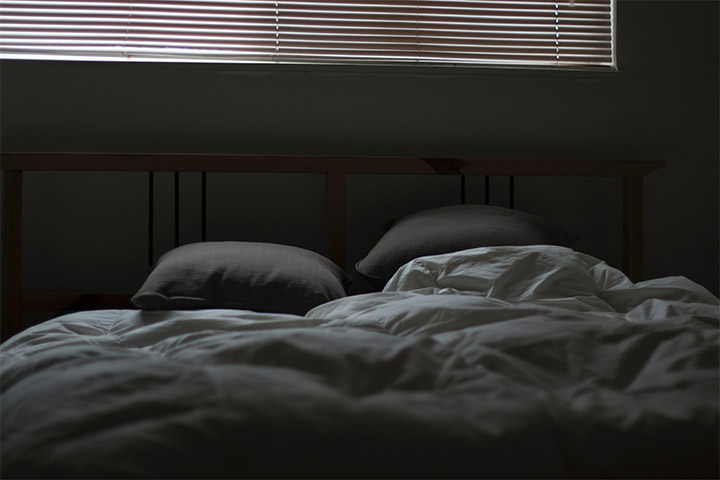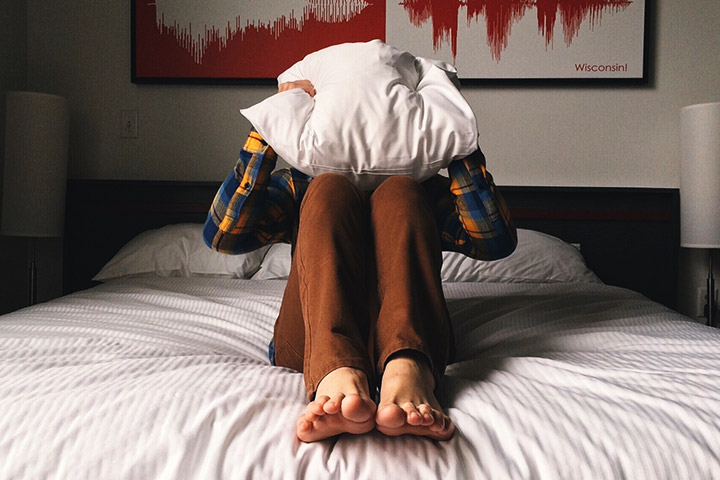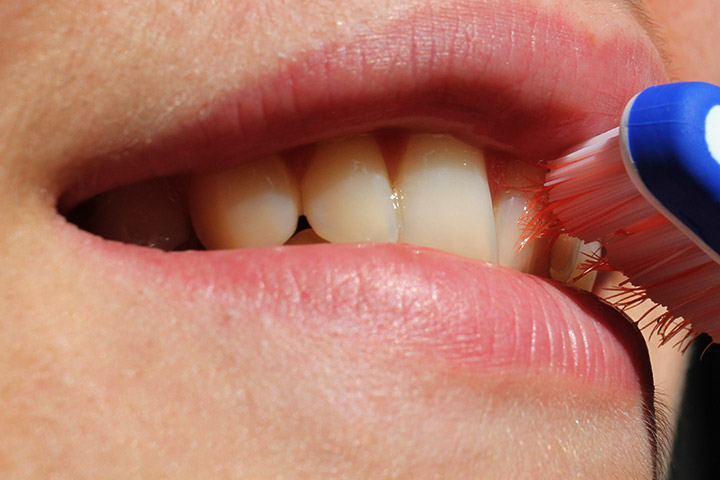You have restless nights, not because you have insomnia, but because of your partner. He or she vocalizes during the night: he or she talks, laughs and sometimes gets carried away. Don’t panic: he/she is probably sleep-talking. What is somniloquy? What causes it? How can it be treated? We tell you all about this sleep disorder.
Somniloquy: what is it?
Somniloquy is a universal disorder belonging to the group of parasomnias (occurring during one of the sleep phases). It consists in talking aloud, periodically or chronically, while asleep. The affected person may speak simple words, complete sentences, make intelligible sounds, laugh, cry, whisper or sometimes even swear. This sleep disorder is usually very difficult for the sufferer: he or she is often afraid of saying the wrong thing or revealing a secret. The sleep-talker may be sleepwalking, but is not necessarily so. Somniloquy, a REM sleep behavior disorder, is indeed a sleep disorder in its own right that affects only 1.5% of the population (versus 15 to 30% of sleepwalking in children and 2% in adults). The sleep-talkers do not get up like the sleepwalkers and their sleep is not disturbed. This disorder is ultimately more embarrassing for the person who shares the bed with the sleep-talker. This can lead to suffering and tensions within a couple or a family. But what are the causes?
What causes somniloquy?
Somniloquy is a complex disorder, which can be caused by many factors:
- lack of sleep, insomnia, severe fatigue;
- high stress;
- taking alcohol or drugs;
- playing sports too late at night;
- taking medication that leads to psychotic behaviour;
- when you are sick with a fever.
Note that somniloquy is also hereditary. You are more likely to be a sleep-talker if a family member is already a sleep-talker. This behavioural disorder also occurs more often in adults who have already experienced sleep-talking as a child.
What are the symptoms of somniloquy?
The symptoms of somniloquy vary from person to person. In all cases, people with the condition vocalise while they sleep. These vocalizations range from simple intelligible sounds to screaming, talking, whispering, mumbling, crying and laughing. Some patients also move their lips without making a sound. Somniloquists may have vulgar language, sometimes accompanied by movements. It is sometimes possible to hold a coherent conversation with a somniloquist. However, it is very likely that the person is responding to someone who is talking to them in their mind, and not to the real person. This makes it difficult to know whether the conversation is real or one-sided.
When they wake up, somniloquists have no memory of the events that occurred during the night: they are not awake and think they had a normal sleep. This is one of the main characteristics of somniloquy: unlike snoring, this sleep disorder has no direct consequences in the life of the person affected.
This person does not suffer from chronic fatigue, seems to sleep well and goes about his daily life as a person without sleep disorders would. There are no night terrors or nightmares: the sleep-talker has a normal sleep duration and does not suffer from waking up during the night. How is this possible? Simply because this TCSP occurs during light slow sleep stage, deep slow sleep stage and REM sleep, unlike many disorders that disturb deep sleep.
How to treat somniloquy?
Unfortunately, there is no real solution for somniloquy. Somniloquy is not serious in itself and does not require treatment. It often occurs in young children and disappears as they grow up. The only solution to sleep-talking in adults and children is to look for the source of the problem, which is often psychological. Applying relaxation methods before sleeping can reduce or eliminate somniloquy when it is caused by stress. When it is linked to a poor lifestyle, it is important to start by adopting better habits (limiting physical exercise in the evening, banning the consumption of alcohol or drugs, consulting a doctor to change a treatment that leads to psychotic behaviour, etc.). Some people also use the technique of self-hypnosis to get back to restful sleep… and silent sleep!
As you can see, although not serious, somniloquy can be very unpleasant. If you or your partner think you are suffering from it, we advise you to remain calm and patient. As mentioned, sleep-talking is, in most cases, a temporary condition. It can occur in times of great stress and go away as quickly as it appeared. However, it is important to consult a doctor when this disorder is associated with another sleep disorder such as sleep apnea, bruxism or sleepwalking.




